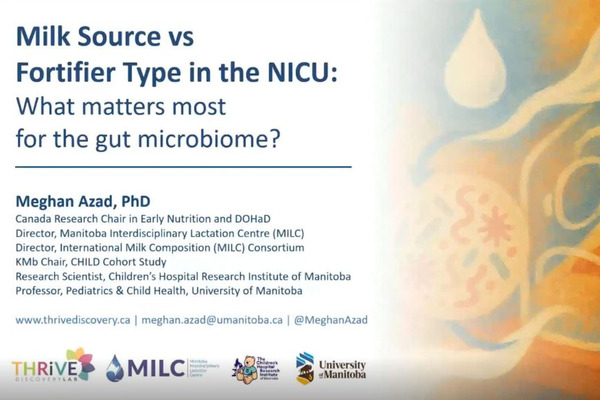
Este módulo de e-learning destaca a necessidade urgente de melhorar os cuidados prestados às mães que enfrentam desafios que impedem o início da lactação. Com base em insights de duas publicações recentes, oferece orientações baseadas em evidência para apoiar as "mães invisíveis", muitas vezes negligenciadas, e melhorar os resultados da lactação por meio de estratégias de cuidados direcionadas e compassivas. Read more

Este módulo de aprendizaje electrónico destaca la urgente necesidad de mejorar la atención a las madres que se enfrentan a dificultades que impiden el inicio de la lactancia. Basándose en las conclusiones de dos publicaciones recientes, ofrece orientación basada en datos empíricos para apoyar a estas «madres invisibles», a menudo olvidadas, y mejorar los resultados de la lactancia mediante estrategias de atención específicas y compasivas. Read more

Ce module d'apprentissage met en évidence l’urgence d’améliorer la prise en charge des mères confrontées à des difficultés qui entravent le démarrage de la lactation. S'appuyant sur les conclusions de deux publications récentes, il propose des conseils fondés sur des données probantes afin de soutenir ces « mères invisibles » souvent négligées et améliorer les résultats en matière d'allaitement grâce à des stratégies de soins ciblées et empreintes de compassion. Read more

Dieses E-Learning-Modul unterstreicht die Notwendigkeit, Frauen mit Risikofaktoren für die Laktation zu erkennen und den herausfordernden Stillbeginn bestmöglich zu unterstützen. Auf der Grundlage von Erkenntnissen aus zwei aktuellen Publikationen bietet es evidenzbasierte Leitlinien zur Unterstützung dieser oft "übersehenen" Mütter. Fokusiert werden verbesserte Stillergebnisse durch gezielte, einfühlsame Betreuungsstrategien. Read more

The gut microbiome and gut inflammation are central to health outcomes in very low birthweight preterm infants. In the NICU, both milk source and fortifier type are important feeding decisions, but their relative influence on these parameters is not well studied. This presentation by Meghan Azad will review new evidence showing that milk source (mother’s own vs donor milk) is more strongly associated with microbiome composition, gut inflammation, and growth than fortifier type (human- vs bovine-derived). Participants will come away with a clearer understanding of how these findings can inform NICU feeding practices and support evidence-based counseling for families. Read more

This foundational e-learning bundle, comprising of 4 modules, provides healthcare professionals with a structured understanding of lactation science, strategies for proactive lactation support and best practices for supporting mothers and infants in the Neonatal Intensive Care Unit (NICU). Four foundational modules: Anatomy & Physiology of Lactation: Explore the structure and function of the lactating breast and how milk is effectively removed during breastfeeding. Colostrum Science: Understand the unique composition and role of colostrum in supporting extrauterine life and its clinical benefits for vulnerable infants. Proactive Lactation Support: Best practices for early lactation support and proactive volume-building strategies for women and infants who are at-risk of early cessation of breastfeeding Best practices for lactation initiation and coming to volume in the NICU: Learn evidence-based strategies to initiate lactation, build milk volume, and overcome barriers faced by mothers in the NICU—ensuring every infant receives the lifelong benefits of mother’s own milk (MOM). Drawing on recent research and compassionate care principles, these courses empowers healthcare providers to improve outcomes for preterm and critically ill infants through targeted, proactive lactation support. Courses are accredited and include clinical competencies, white papers, infographics to download. Read more
Shopping Cart
Your cart is empty
